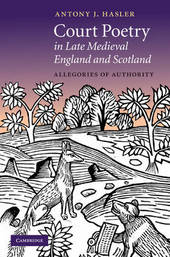
|
Court Poetry in Late Medieval England and Scotland: Allegories of Authority
Hardback
Main Details
Description
This book explores the anxious and unstable relationship between court poetry and various forms of authority, political and cultural, in England and Scotland at the beginning of the sixteenth century. Through poems by Skelton, Dunbar, Douglas, Hawes, Lyndsay and Barclay, it examines the paths by which court poetry and its narrators seek multiple forms of legitimation: from royal and institutional sources, but also in the media of script and print. The book is the first for some time to treat English and Scottish material of its period together, and responds to European literary contexts, the dialogue between vernacular and Latin matter, and current critical theory. In so doing it claims that public and occasional writing evokes a counter-discourse in the secrecies and subversions of medieval love-fictions. The result is a poetry that queries and at times cancels the very authority to speak that it so proudly promotes.
Author Biography
Antony J. Hasler is Associate Professor in the Department of English, Saint Louis University.
Reviews"This work is a challenging examination of eight poets associated with royal courts, English and Scottish, between 1485 and 1528. Its concern is the way in which these writers engage with authority-royal, political and patronal, cultural, literary, and generic - and how those engagements shape the poetic I." --Renaissance Society of America "This is a careful study that attempts to set the literary construction of late medieval Scottish and English court poetry in the context of European humanism." --Parergon - Journal of the Australian and New Zealand Association for Medieval and Early Modern Studies
|